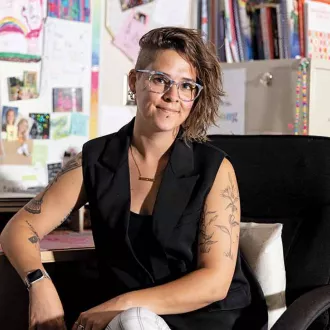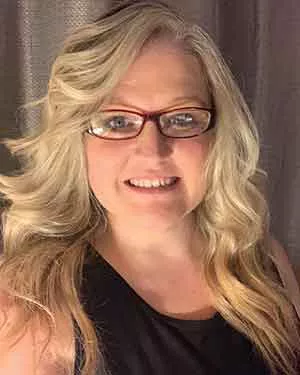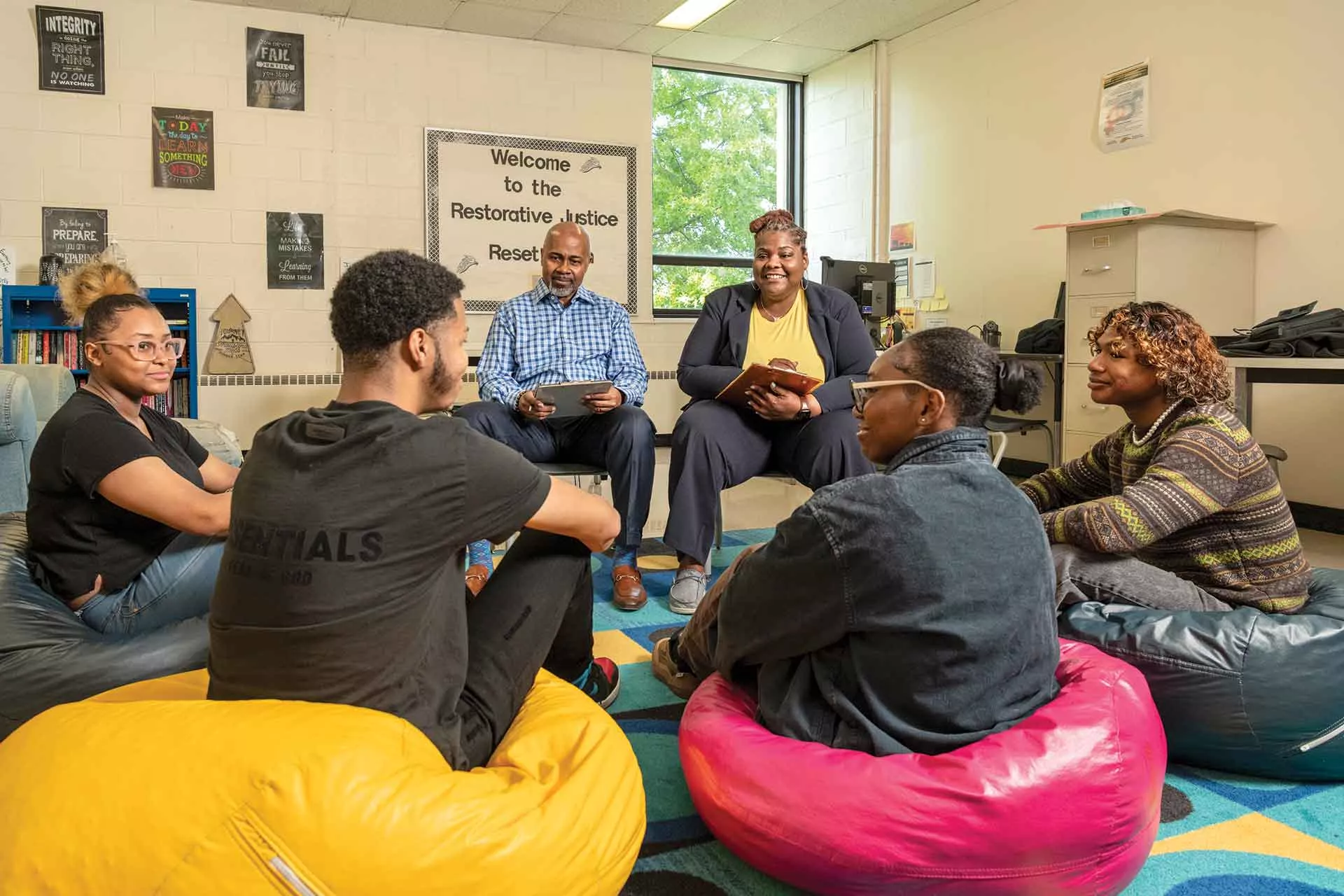Megan Bain recently helped a young student overcome social anxiety.
“He would freeze up in the face of unstructured social interactions,” says Bain, a special education social worker for Falmouth Public Schools, in Maine.
To reduce the student’s anxiety during recess and lunch, she helped him learn to socially engage with a friend or two. Together, they worked on how to initiate conversations and transition from one topic to another. Bain now sees the student searching for friends without her support.

Eboni Rucker, a restorative justice coordinator for Illinois’ Thornton Township School District 205, says she helps students “put out the fires.” “It is my job to help them solve conflict, recognize the feelings and perspectives of others, and support them in their social and emotional endeavors,” Rucker says. “The biggest thing is giving them the resources and the skills they need to be most successful. I’m teaching my students life skills.” Known as social and emotional learning (SEL), these skills include how to navigate social situations, stand up for people from diverse backgrounds, and empathize with others. But these important teachings have come under attack buy certain lawmakers and anti–public education groups, such as Moms for Liberty.
Their goal? Spread disinformation and vilify schools and educators.
A manufactured crisis
Since 2021, attacks on educators and public education have been relentless. Some politicians deliberately conflate any talk of diversity, equity, and inclusion with the teaching of “critical race theory”; censoring discussions of LGBTQ+ people; and criminalizing the teaching of an honest and accurate history. “These opposition groups are not reacting to reality,” says Denise Specht, president of Education Minnesota (EdMN). “They’re reacting to a conspiracy network that runs through some churches, Fox News, and QAnon.” She adds, “It’s not an organic movement. It’s a national campaign through national media channels that has popped up here.”
Quote byHannah Grimley, Third-grade teacher

Disinformation creeps into schools
In June 2022, The New York Times reported how right-wing activist Chris Rufo made SEL a “flashpoint for conservatives.” Rufo spread lies that SEL was being used to “groom” students.
His messages were picked up by groups like the Center of the American Experiment (CAE)—a political think tank that pushes the agenda of its right-wing corporate donors and runs campaigns to get EdMN members to leave their union.
At an event earlier this year, a CAE guest speaker accused educators who use SEL practices of teaching students a “world view that is anti-God, anti-family, [and] anti-American.”
While comments like these are baseless, the worst part is that they’re making their way into establishment organizations. “These types of groups are not outlandish outliers,” Specht says. “The Center of the American Experiment is very much in the middle of the conservative movement in Minnesota."
In April 2024, Matt Audette, a member of the Anoka-Hennepin School Board, posted on Facebook that he and two other board members would reject the $20 million school budget if it included SEL.
The budget is expected to pass, but the threats to SEL remain.
'A serious disconnect'
Minnesota school counselor Ambrosia Doty shares how one day, while leading a staff meeting focused on students’ concerns, one teacher walked out of the room.

Another asked: “How long until this is over?”
“I am frustrated with the general lack of understanding, support, and misrepresentation of social emotional learning, especially amongst other educators,” says Doty, who at the time worked for Atwater Cosmos Grove City School, in western Minnesota. (Her job was eliminated at the end of the school year for budget reasons.)
“Helping kids to learn conflict resolution is not a Marxist concept!” Doty adds. “Teaching coping skills and how to advocate for one’s needs is not a form of rebellion in schools.”
She recalls one of her colleagues saying that the research on SEL proves schools need and want it. In the next breath, he said students don’t need to leave the class to take a walk, as a coping skill.
“There’s a serious disconnect,” she says.
What to Say When Someone Attacks SEL
Attacks on emotions
The contentious rhetoric around SEL hit close to home for Hannah Grimley, a third-grade teacher in the Anoka-Hennepin district, the largest district in Minnesota. “These [extreme conservative groups] think we’re indoctrinating students toward an ‘LGBTQ lifestyle,’” Grimley explains. “If they were to look at the content, enter our classrooms, and see what’s happening, they would realize very quickly that that is not what social emotional learning is.”
At her school, they focus on nine words in their SEL curriculum: Empathy, cooperation, respect, responsibility, perseverance, courage, gratitude, honesty, and creativity.
Students face real danger
A few years ago, Grimley’s district had the highest rate of death by suicide among LGBTQ+ teens—eight in under two years.
Grimley shares that SEL has helped high schoolers feel welcome, seen, and heard in their schools. It’s given middle schoolers resources to help them use their voice to advocate and express themselves. For elementary students, they’re learning how to talk to one another in kind, respectful ways.
“If that is taken away, they’re going to lose the base of good, human decency,” she says.
Foundational skills for a better future
“When we think about social-emotional learning at our school, we’re not just thinking about preparing students for the world they exist in now,” Bain says. “We’re thinking about … the world that they’re [going] to enter into, which is why some topics feel controversial to certain families.
“[SEL] is about exposing kids to different ways of life, different walks of life, different humans so that they can interact with them in a way that’s kind of respectful.”
Next steps
Visit nea.org/SEL to support students’ freedom to thrive by strengthening their life skills.
Get additional tips for how to talk about SEL.



